Mastering End-of-Life Management for Kitchen Suppression Cylinders in Fayetteville
End-of-life management for fire suppression systems in commercial kitchens is critical. Regular cert…….
Introduction
Every year, kitchen fires account for a significant portion of residential fires in the United States. In Fayetteville, North Carolina, as in many places, the prevention and management of such fires are critical to maintaining public safety and protecting property. The Kitchen Suppression Inspection Fayetteville is a comprehensive program designed to assess the readiness of kitchen fire suppression systems within residential and commercial properties. This article delves into the intricacies of this program, its historical context, its role in the broader landscape of fire safety, and its implications on a global scale. Readers will gain an understanding of the importance of regular inspections, the economic impact, technological advancements, policy considerations, and the challenges faced by this vital service.
Understanding Kitchen Suppression Inspection Fayetteville
Kitchen Suppression Inspection Fayetteville is a systematic evaluation process that ensures all kitchen fire suppression systems are functioning optimally. This includes checking for proper installation, maintenance, and operation of the fire suppression equipment. The program is mandated by local regulations and is part of a larger initiative to prevent and mitigate the impact of kitchen fires. It encompasses various types of suppression systems, including wet chemical, dry chemical, and foam systems, each tailored to different kitchen environments and fire risks.
The historical context of kitchen fire suppression in Fayetteville dates back to when the first regulations were introduced to address the increasing number of kitchen fires. Over time, these regulations have evolved to include more robust inspection protocols and technological advancements, reflecting the changing dynamics of kitchen design and fire hazards.
Global Impact and Trends
The influence of Fayetteville’s Kitchen Suppression Inspection extends beyond its city limits. As a pioneer in fire safety, its regulations and best practices have been adopted and adapted by cities worldwide. The global impact is evident in the increasing standardization of kitchen fire suppression systems and inspections across different continents.
Key trends shaping the trajectory of this program include the integration of smart technology and IoT devices for real-time monitoring, the development of more environmentally friendly suppression agents, and the adoption of international standards that promote safety and interoperability. Different regions are affected in various ways, with densely populated urban areas like Fayetteville leading the way in adopting advanced systems, while rural areas may focus on basic compliance to meet regulatory requirements.
Economic Considerations
The economic aspects of Kitchen Suppression Inspection Fayetteville are multifaceted. From a market dynamics perspective, there is a steady demand for fire suppression systems and inspection services due to the increasing number of kitchens in both residential and commercial settings. Investment patterns reflect a growing emphasis on proactive safety measures over reactive responses to fires.
The role of Kitchen Suppression Inspection Fayetteville within economic systems is significant, as it not only prevents potential losses from fires but also supports the local economy by creating jobs for inspectors, installers, and maintenance personnel. The economic impact of averted fires through timely inspections and maintenance cannot be overstated, saving money for property owners and reducing the burden on emergency services.
Technological Advancements
Technological advancements in kitchen fire suppression systems have been instrumental in enhancing safety and efficiency. Innovations such as automated fire detection systems, intelligent agent suppression systems, and advanced materials for fire barriers have significantly improved response times and suppression effectiveness.
The impact of these technologies has been profound, reducing the frequency and severity of kitchen fires. The future potential of these systems includes further integration with building management systems, predictive analytics to identify potential fire risks, and AI-driven inspections that can provide real-time data on system performance.
Policy and Regulation
The policies and regulations governing Kitchen Suppression Inspection Fayetteville are a critical component of the program’s success. These include the National Fire Protection Association (NFPA) standards, local ordinances, and state laws that dictate the frequency and scope of inspections. The legislative framework is designed to ensure that all kitchen suppression systems meet specific performance criteria and that they are maintained by qualified professionals.
The influence of these policies on the development of Kitchen Suppression Inspection Fayetteville has been significant, shaping the way inspections are conducted and the level of preparedness within the community. Compliance with these regulations not only ensures safety but also fosters a culture of vigilance and proactive maintenance.
Challenges and Criticisms
Despite its importance, Kitchen Suppression Inspection Fayetteville faces several challenges and criticisms. One of the primary issues is ensuring consistent application of inspection protocols across different jurisdictions. Additionally, there is a need for ongoing training and certification for inspectors to keep up with technological advancements.
Another challenge is the cost associated with installing, maintaining, and inspecting fire suppression systems, which can be prohibitive for some property owners. Critics also point out the lack of standardization in some regions, leading to inconsistent levels of safety and preparedness. Proposed solutions include increased funding for training programs, incentives for property owners to upgrade their systems, and more robust inter-jurisdictional cooperation to ensure consistent application of best practices.
Case Studies
To illustrate the effectiveness of Kitchen Suppression Inspection Fayetteville, let’s examine a few case studies:
A large commercial kitchen in Fayetteville underwent a routine inspection, which revealed a malfunctioning suppression system. Timely repairs prevented a potential fire disaster and saved the business thousands of dollars in damages and lost revenue.
In a residential setting, an inspection led to the discovery of outdated suppression equipment. The residents were able to upgrade their system with newer technology that was more effective and required less maintenance, providing them with greater peace of mind.
A local ordinance revision in response to a series of kitchen fires resulted in stricter regulations for fire suppression systems, which ultimately reduced the number of kitchen fires by 20% within a year.
Conclusion
Kitchen Suppression Inspection Fayetteville is a testament to the importance of proactive safety measures and the role they play in protecting lives and property. The program’s success hinges on a combination of stringent regulations, advanced technology, economic investment, and community awareness. As global trends continue to shape its evolution, Kitchen Suppression Inspection Fayetteville remains at the forefront of fire safety innovation and best practices. With ongoing efforts to address challenges and criticisms, the program is well-positioned to adapt to future needs and maintain its status as a leader in fire prevention and response.
FAQs
What are the benefits of regular Kitchen Suppression Inspections?
Regular inspections ensure that kitchen fire suppression systems are functioning correctly, reducing the risk of fire damage and promoting a safer environment for all.
Who conducts Kitchen Suppression Inspections in Fayetteville?
Qualified inspectors employed by local fire departments, independent inspection companies, or certified professionals often conduct these inspections.
Are there any financial incentives for businesses to comply with Kitchen Suppression Inspection regulations?
Some jurisdictions offer tax credits or rebates to businesses that install modern suppression systems or comply with inspection requirements.
How do technological advancements impact Kitchen Suppression Inspections?
Advancements lead to more efficient, reliable, and cost-effective systems, making inspections easier and enhancing overall safety.
What are the potential consequences of not adhering to Kitchen Suppression Inspection regulations?
Non-compliance can result in fines, legal action, increased insurance premiums, and, most critically, an increased risk of damage or loss due to a kitchen fire.

End-of-life management for fire suppression systems in commercial kitchens is critical. Regular cert…….

Commercial kitchens in Fayetteville require strict fire safety adherence, emphasizing the importance…….
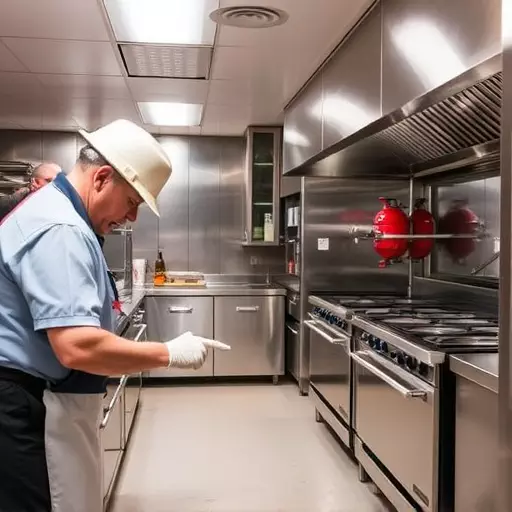
Dry chemical fire suppression systems in commercial kitchens require regular maintenance through Kit…….
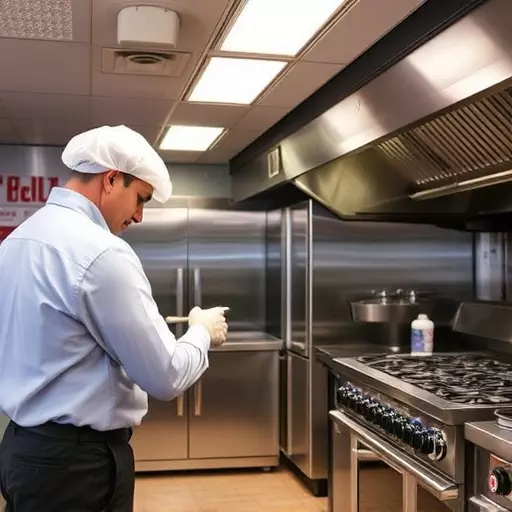
In the dynamic commercial kitchen landscape, fire safety is paramount. Regular Kitchen Suppression I…….
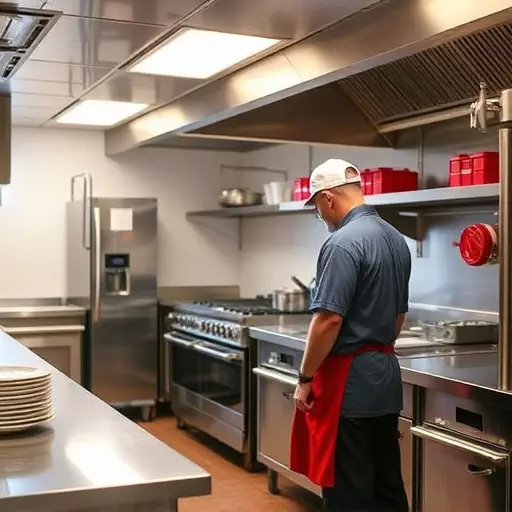
Leak testing is a crucial aspect of maintaining fire safety in commercial kitchens, with certified k…….
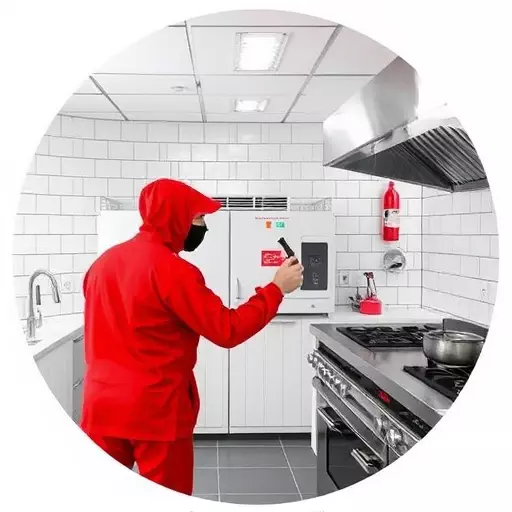
In Fayetteville, North Carolina, regular Kitchen Suppression Inspection Fayetteville and fire suppre…….
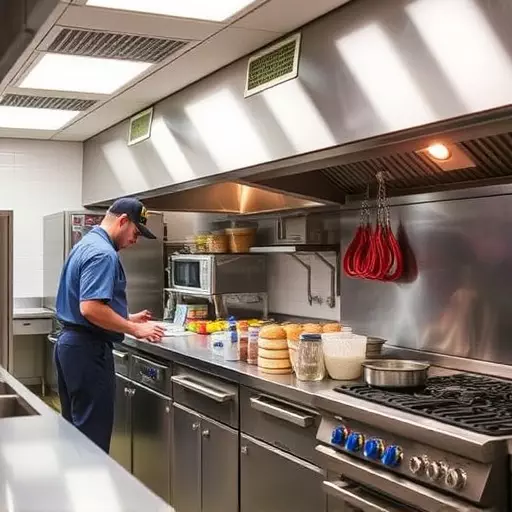
Kitchen Suppression Inspection Fayetteville is crucial for commercial kitchens, focusing on speciali…….
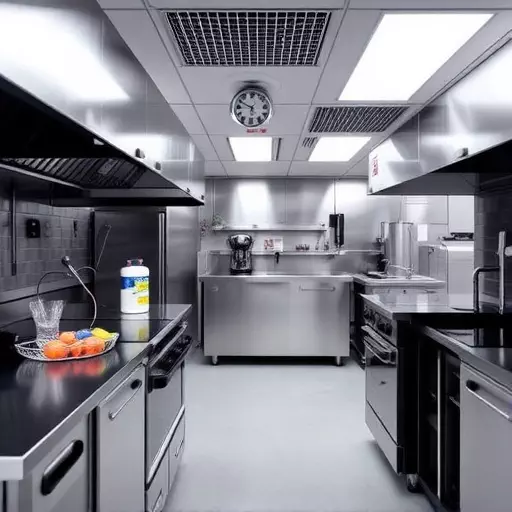
Emergency preparedness audits, especially Certified Kitchen Suppression Inspections in Fayetteville,…….
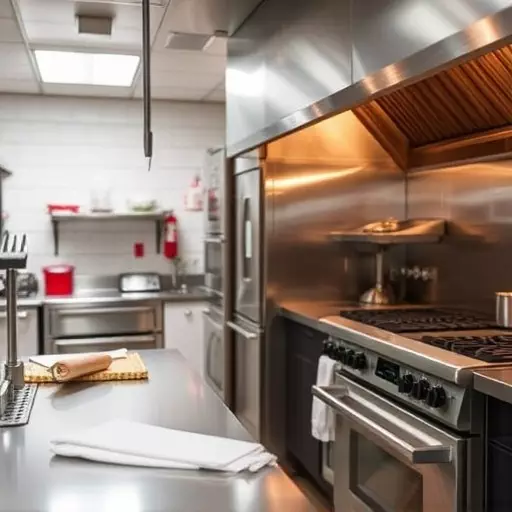
Fire suppression systems in commercial kitchens are crucial for safety, consisting of strategically…….
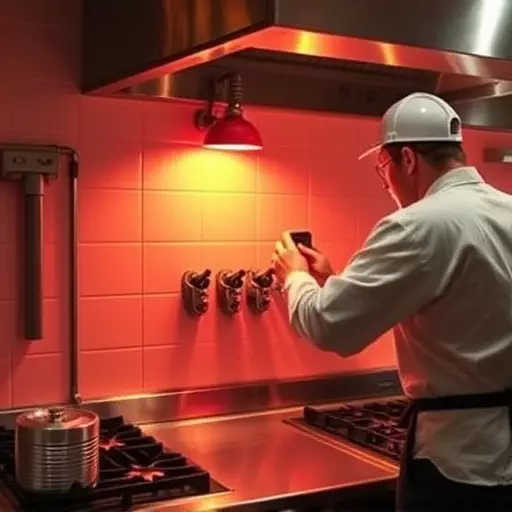
Kitchen Suppression Inspection Fayetteville offers critical fire safety services for commercial kitc…….